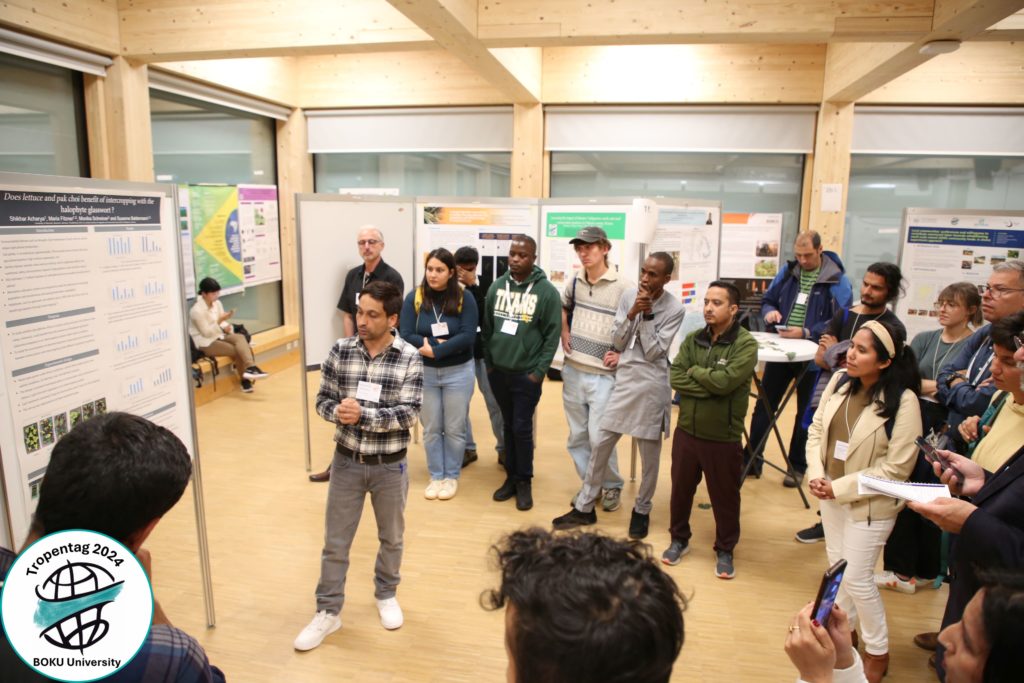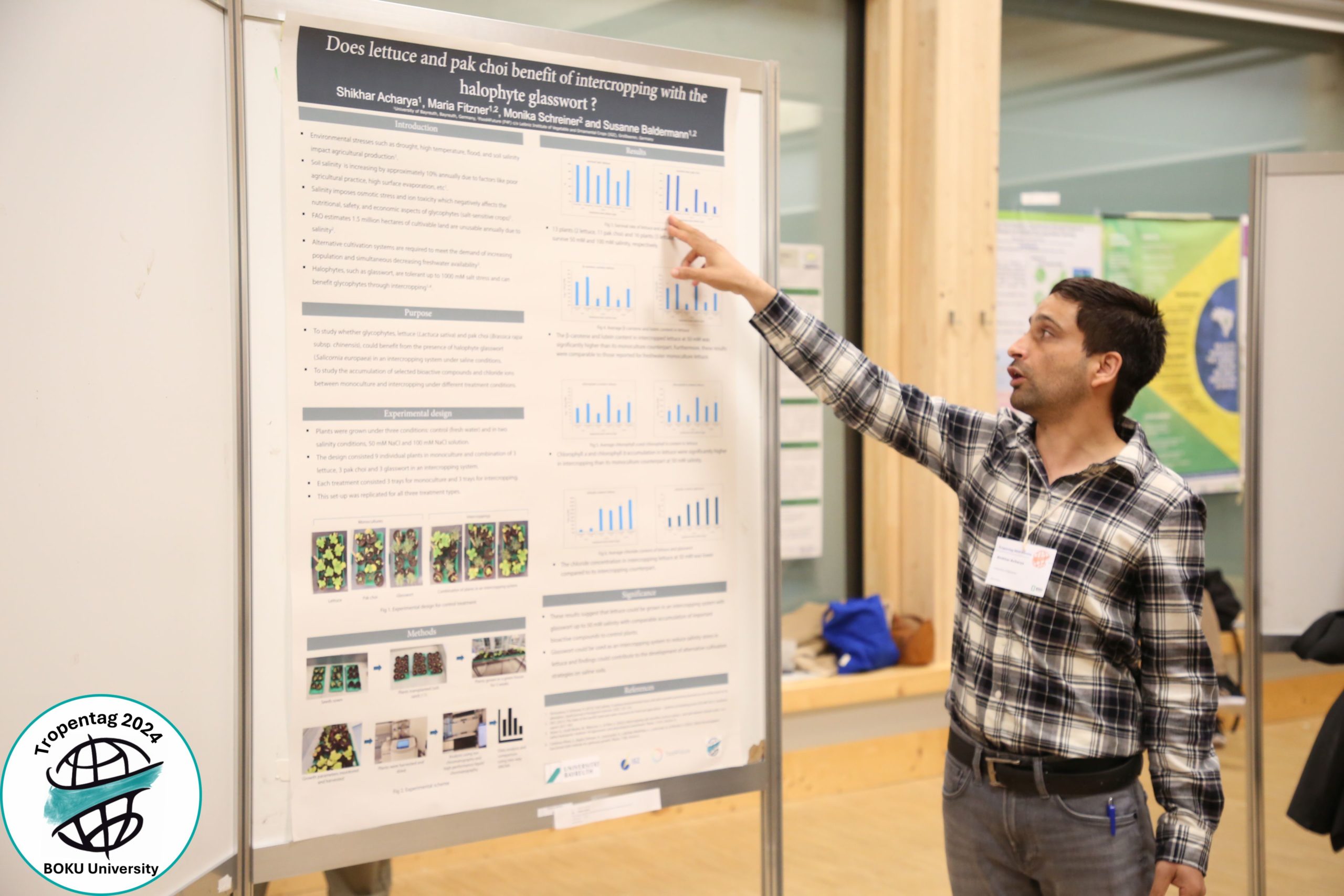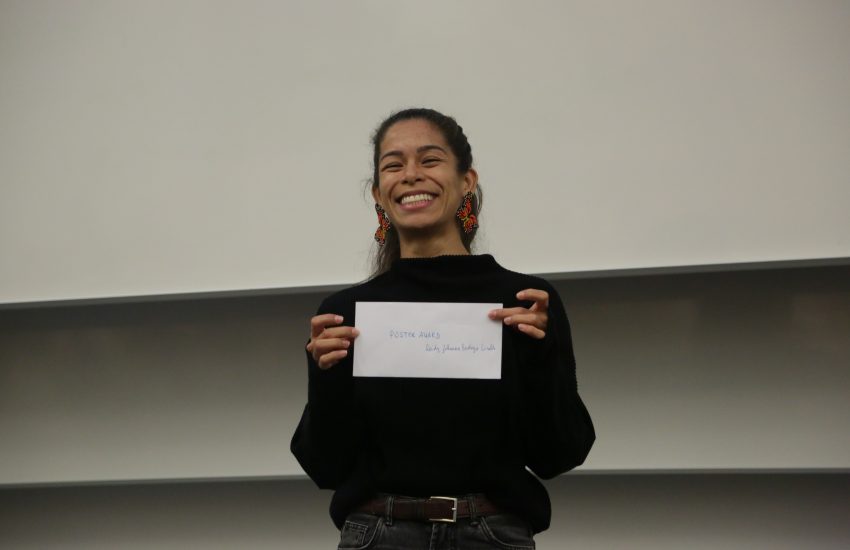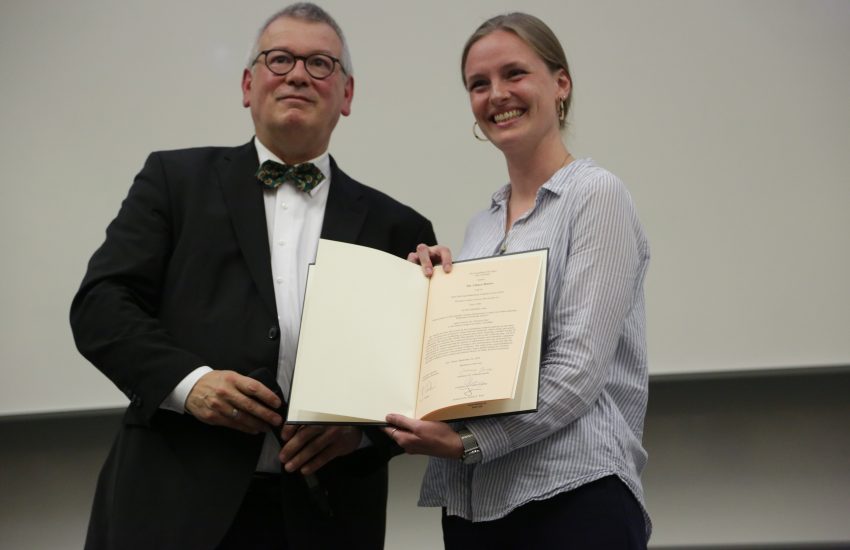Can intercropping halophytes benefit salt-sensitive crops in saline soils?
As soil salinity continues to rise, threatening global agricultural production, finding innovative solutions to mitigate its impact is crucial. At the Tropentag Conference 2024, researchers from the University of Bayreuth introduced an innovative study that could revolutionize how we grow crops in saline environments.
The research, presented by Shikhar Acharya, explored an exciting intercropping strategy aimed at improving the resilience and nutritional quality of salt-sensitive crops, such as lettuce, through intercropping with the salt-tolerant halophyte, glasswort (Salicornia europaea).
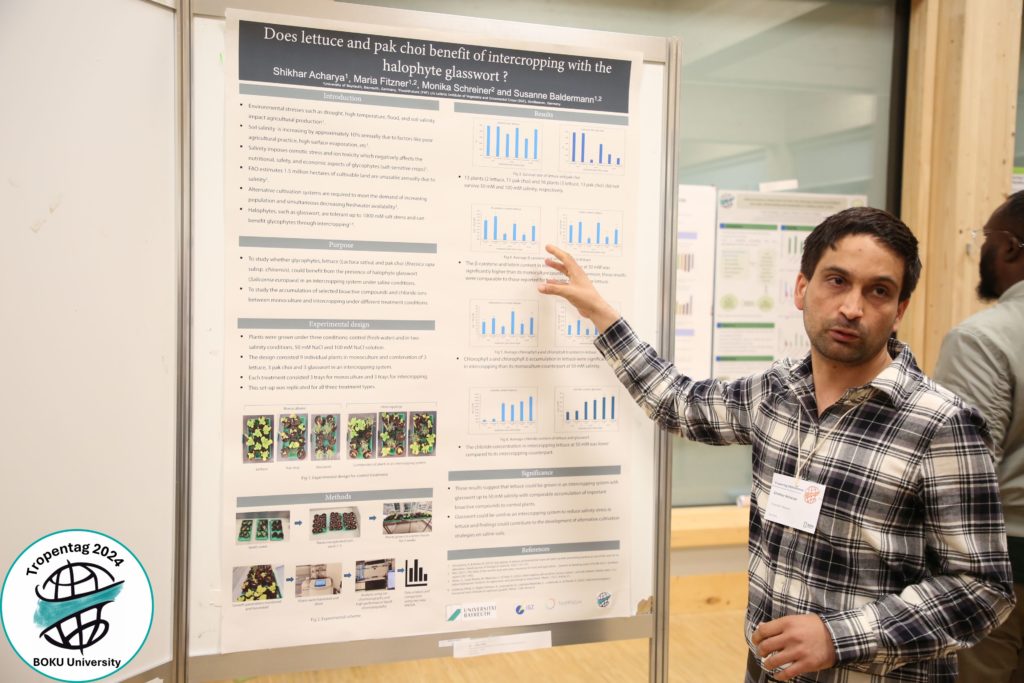
The results were promising. The presence of halophyte-glasswort showed beneficial results of intercropping by reducing salt stress levels in lettuce under 50 mM salinity conditions. For instance, health-beneficial bio-active compounds, such as β-carotene, lutein, and chlorophyll were significantly improved in intercropping when compared to lettuce alone monoculture. Although pak choi was initially part of the experiment, its low survival rate limited further investigation.
In his presentation, Mr. Acharya illustrated how these findings could provide a sustainable strategy for farming in saline soils. This strategy not only enhanced the nutritional quality of the lettuce but also enabled the crop to more effectively cope with salt stress. While the current study showed beneficial results in a controlled greenhouse environment, field trials, and further research are necessary to validate these findings.
The presentation took place during the ‘Abiotic Stress’ poster session, chaired by Prof. Dr. Folkard Asch, which gathered together a large group of young scientists and professionals from diverse fields, all interested in the newest findings in plant physiological processes.
